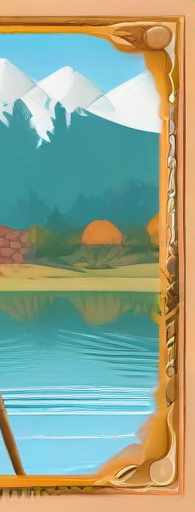
Examples of Traditional Cosmetics in Nigeria: Face Painting and More
Nigeria, a country with a rich cultural heritage, has a plethora of traditional cosmetics that have been passed down through generations. From face painting to body art, these ancient practices are not only aesthetically pleasing but also hold deep cultural significance. In this article, we'll delve into the world of Nigerian traditional cosmetics and explore some fascinating examples.
A Brief History of Traditional Cosmetics in Nigeria
Nigerian traditional cosmetics have been a part of the country's cultural landscape for centuries. The use of makeup dates back to ancient times when women used natural ingredients like plant extracts, clay, and charcoal to adorn their faces. These early forms of makeup were not only used for aesthetic purposes but also held spiritual significance.
Face Painting: A Timeless Tradition
One of the most striking examples of Nigerian traditional cosmetics is face painting. This ancient practice has been passed down through generations and is an integral part of many Nigerian cultures. Face painting is not just a form of self-expression but also holds deep cultural significance.
For instance, in some Nigerian communities, face painting is used to signify marital status. A bride's face is painted with intricate designs and patterns to symbolize her new role as a wife. Similarly, a widow's face may be painted with white clay to signify her mourning period.
Body Art: Adorning the Body
Another fascinating example of Nigerian traditional cosmetics is body art. This ancient practice involves adorning the body with intricate designs and patterns using natural ingredients like henna, turmeric, and charcoal.
In some Nigerian communities, body art is used to signify social status or marital status. For instance, a woman's arms may be adorned with intricate henna designs to symbolize her new role as a mother-in-law.
Necklaces: A Symbol of Beauty
African necklaces are a staple in Nigerian traditional cosmetics. These colorful adornments are not only aesthetically pleasing but also hold deep cultural significance. In some Nigerian communities, necklaces are used to signify beauty and femininity.
For instance, a woman's necklace may be adorned with cowry shells or beads to symbolize her marital status. A single strand of beads may indicate that the woman is unmarried, while multiple strands may signify that she is married.
Examples of Traditional Cosmetics in Nigeria
Here are some examples of traditional cosmetics used in Nigeria:
| Cosmetic | Description |
|---|---|
| Henna Body Art | Adorns the body with intricate designs and patterns using henna extract. |
| Face Painting | Uses natural ingredients like plant extracts, clay, and charcoal to adorn the face. |
| Bead Necklaces | Adorns the neck with colorful beads or cowry shells to signify beauty and femininity. |
Frequently Asked Questions
Q: What are some examples of traditional cosmetics used in Nigeria?
A: Some examples include henna body art, face painting, and bead necklaces.
Q: Why is face painting important in Nigerian culture?
A: Face painting holds deep cultural significance and is used to signify marital status or social status.
Q: Can you provide more information on African necklaces?
A: African necklaces are a staple in Nigerian traditional cosmetics and are used to signify beauty, femininity, or marital status.
Key Takeaways
- Traditional cosmetics have been an integral part of Nigerian culture for centuries.
- Face painting is not only aesthetically pleasing but also holds deep cultural significance.
- Body art is used to adorn the body with intricate designs and patterns using natural ingredients.
- African necklaces are a symbol of beauty, femininity, or marital status.
Learn More
For more information on Nigerian traditional cosmetics, visit examples of traditional cosmetics in Nigeria.

